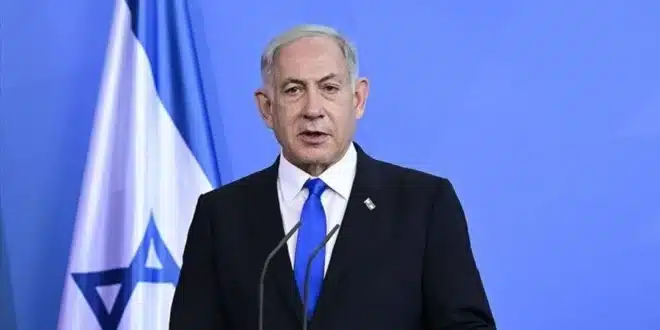Israeli Prime Minister Benjamin Netanyahu issued a firm rejection of Palestinian statehood on Sunday (Sept 21), just hours after the United Kingdom, Canada, and Australia formally recognized the State of Palestine. Speaking directly to Western governments, Netanyahu denounced the move as “one-sided” and pledged to further expand Jewish settlements in the West Bank.
A Defiant Message to the West
In his remarks, the Israeli leader accused Western powers of rewarding violence by granting recognition in the aftermath of Hamas’ October 7 attack.
“I have a clear message for those leaders who recognize a Palestinian state after the horrific massacre on October 7: you are granting a huge reward to terror,” Netanyahu declared. He went on to stress, “It will not happen. No Palestinian state will be established west of the Jordan River.”
The statement underscores Netanyahu’s long-held position against Palestinian sovereignty, a stance that has put him at odds with many international allies and inflamed debate over the future of the two-state solution.
Settlement Expansion at the Forefront
Netanyahu also used the occasion to highlight his government’s policy of accelerating settlement construction in the occupied West Bank, a practice widely condemned by the international community as illegal under international law.
“For years, I have prevented the creation of this terror state despite enormous pressure both domestically and internationally,” he said. “Moreover, we have doubled Jewish settlements in Judea and Samaria and we will continue on this path.”
By invoking the Biblical terms “Judea and Samaria,” Netanyahu reinforced his government’s ideological claim to the territory, framing settlement growth not just as a political policy but as a historical and cultural imperative.
Growing International Isolation
The timing of Netanyahu’s remarks highlights Israel’s increasing diplomatic isolation. With the UK, Canada, and Australia joining a growing list of countries that recognize Palestinian statehood, Israel now finds itself at odds with some of its closest allies.
While Washington remains opposed to unilateral recognition, analysts suggest that the coordinated recognition by these three powers could embolden other Western nations to follow suit. This adds new urgency to Israel’s diplomatic challenges at a time when the war in Gaza continues to draw widespread condemnation.


